CBD Knowledge is Key
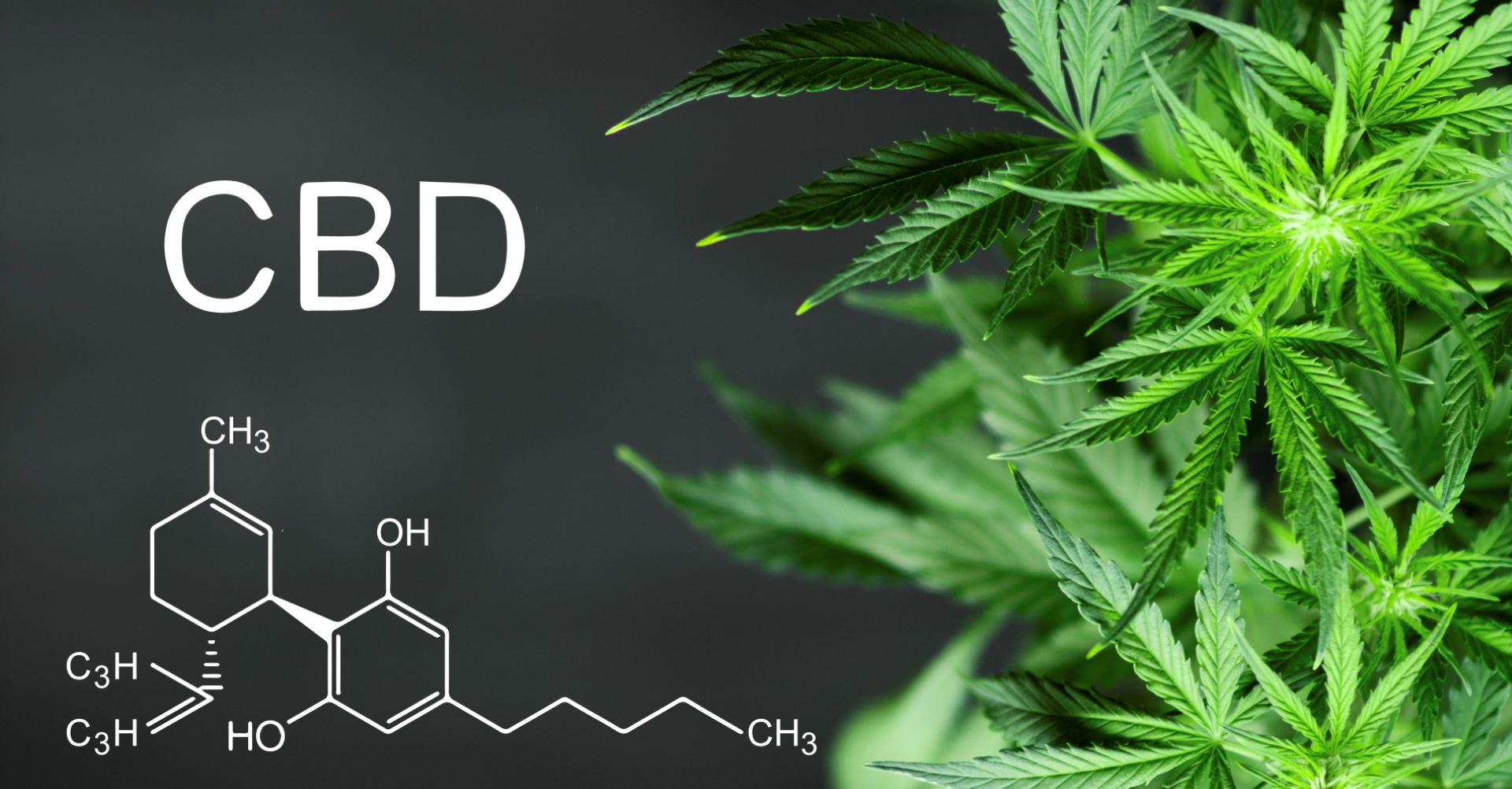
CB1 Receptors, CB2 Receptors & Hemp Terpenes
Cannabidiol (CBD) has been generating a lot of buzz lately. You've probably noticed CBD oil for sale at your local dispensary, but you might be wondering what it is and how it differs from products produced by the cannabis plant.
Our team here at Liberation Nation will help you understand CBD by going over CB1 receptors, CB2 receptors, the benefits of hemp terpenes, as well as some helpful hints to know before you buy!
CB-receptors are two main types of receptors in the human body that interact with cannabinoids. Simply put, they're what CBD interacts with to provide health benefits. They also interact with the THC produced by the cannabis plant to provide a natural high.
CB1 Receptors - Primarily found in your brain
CB2 Receptors - Typically found on immune cells
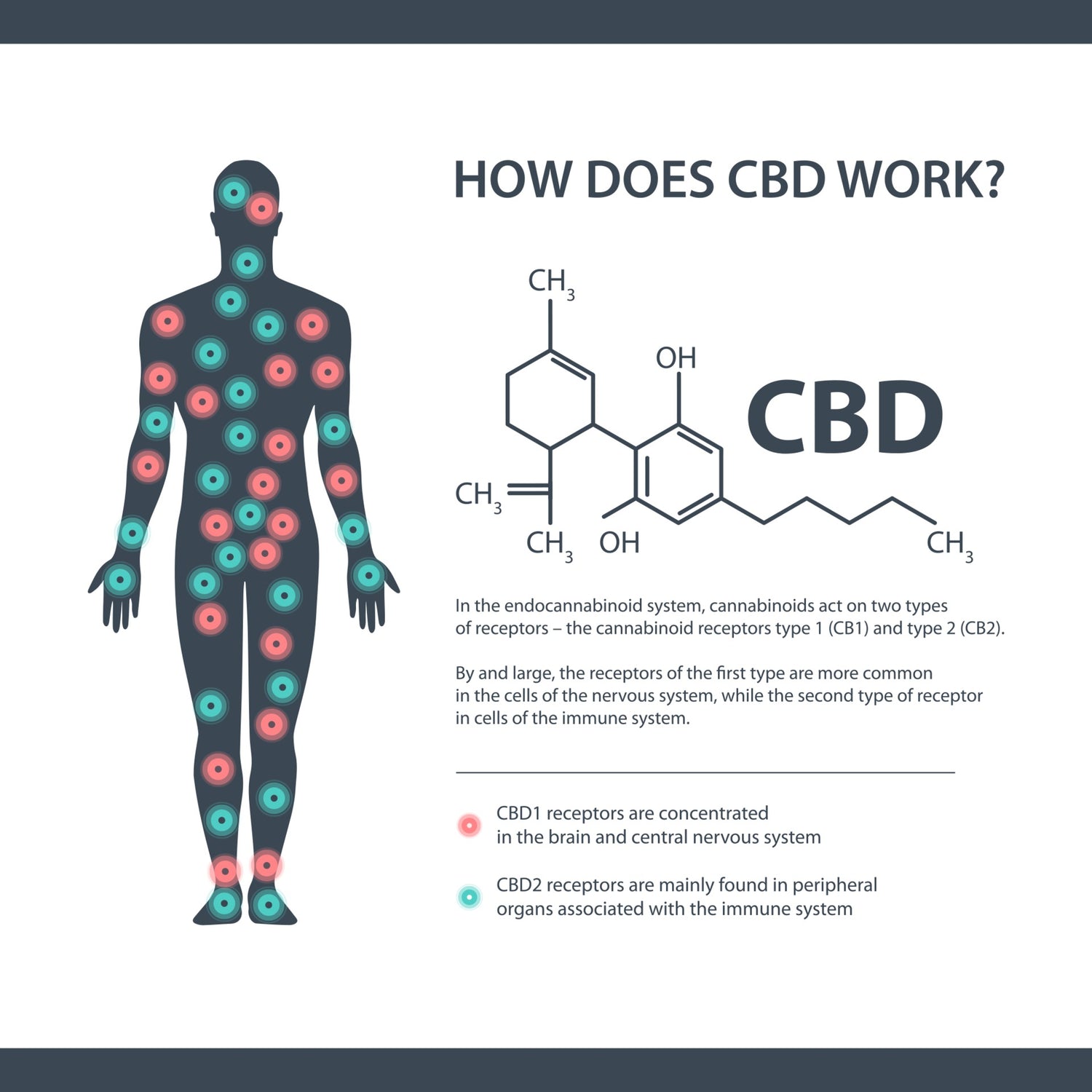
Understanding CB1 Receptors
CBD and THC both come from a cannabis Sativa plant. These chemical compounds circulate through the bloodstream to the brain, activating cannabinoid receptors. Cannabis-derived CBD is non-psychoactive; instead, it potentiates THC by enhancing its effects on CB1 receptors throughout the body. These effects include a mood boost that renders mood disorders less overwhelming (desensitization).
CBD Is True Bliss
CBD will increase levels of anandamide in the brain, one of the few cannabinoids found naturally in the body. Derived from the Sanskrit word Ananda, anandamide stands for bliss. Studies suggest a CBD product can help manage mood disorders, improve sleep cycles, and pain management.
Why CBD Works So Well
CBD products work so well because CBD inhibits FAAH enzymes from breaking anandamide down. As a result, people who take CBD can experience reduced mood disorders and other benefits that come with being less anxious, thanks to this inhibitory effect on the FAAH enzyme's activity level.
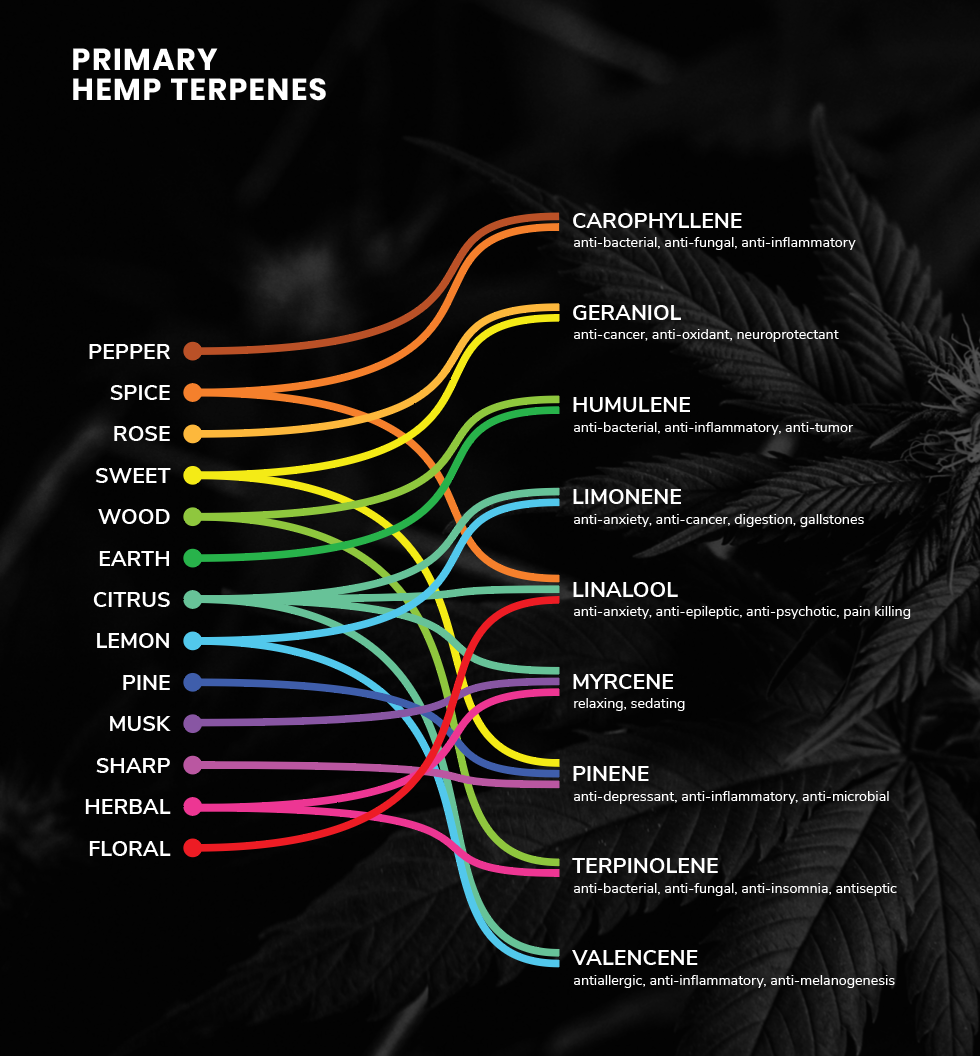
Terpenes: The Essential Oils of All Plants
Terpenes are organic substances found exclusively in plants. These oils are responsible for making cannabis aromatic and flavorful. Terpenes also serve as natural pesticides for plants by repelling pests or creating an inhospitable environment for bugs to thrive in; hemp contains a variety of terpene profiles that can help regulate mood, immune response, and inflammation.
CBD products work so well because
There are several similarities between all three of these variations of CBD products. These similarities are that CBD manufacturers extract CBD from industrial hemp plants, are rich in CBD, have therapeutic effects, and their extraction processes are the same. In addition, these hemp-derived CBD products help address several health conditions traditionally managed with prescription medications, such as pain management, sleep cycle improvement, mood disorder management, focus & memory enhancement, and joint health support.
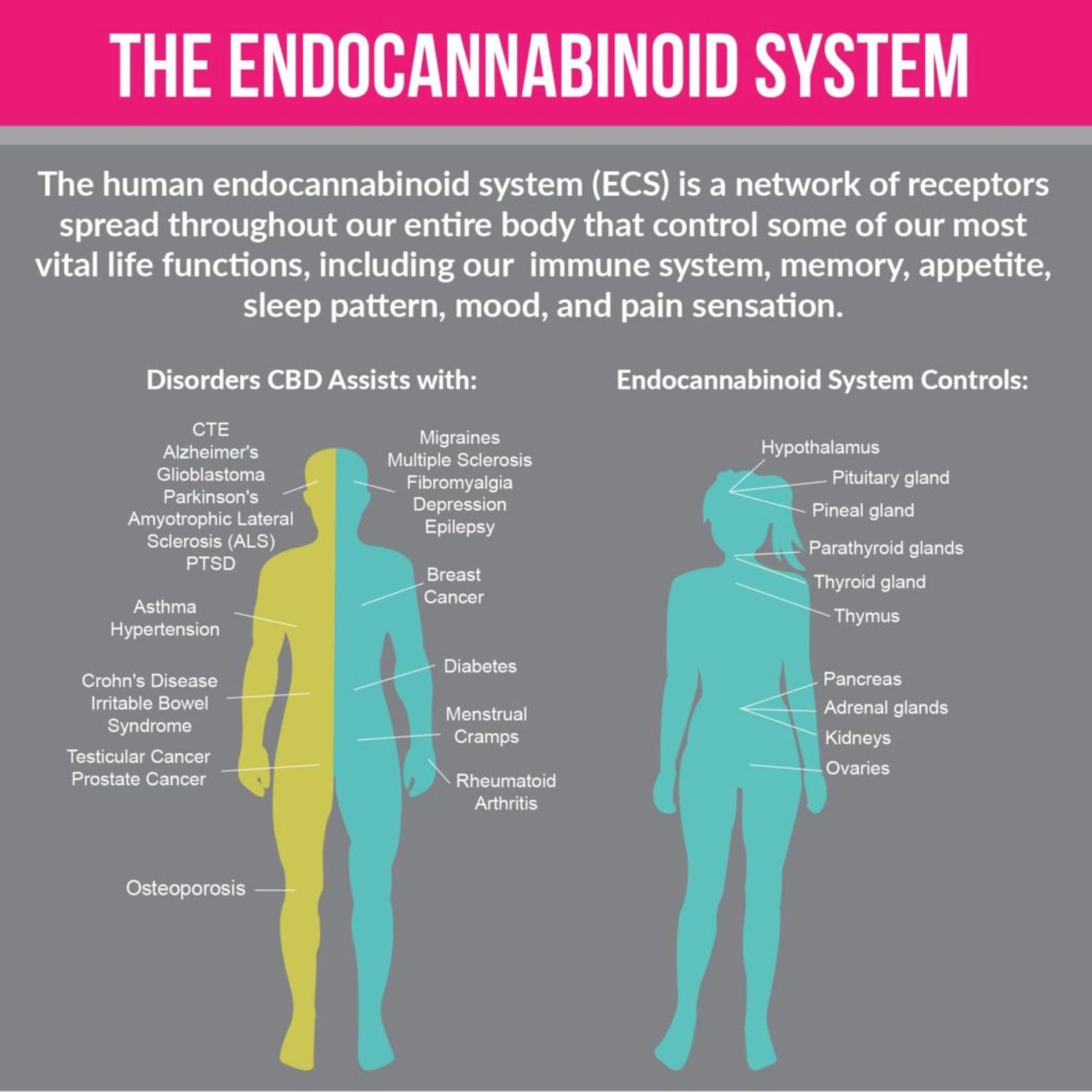
Understanding the Endocannabinoid System
The endocannabinoid system (ECS) is responsible for several vital functions that are crucial to your health. It controls aspects such as:
- Eating habits
- Sleep patterns
- Social behaviors
- Joint health
- Pain management
- Mood disorder management
CBD Supports Calmness
Researchers have found that CBD promotes general feelings of calmness and reduces feeling overwhelmed in individuals experiencing mood disorders. The ability to remain calm during these situations gives them more control over their reactions. This response is based on a deliberate choice rather than the automatic response from adrenaline caused by stress hormones such as cortisol.
CBD as a Natural Mood Enhancer
In addition to alleviating feelings of stress and worry, CBD also works as a natural mood enhancer! Researchers have discovered that this natural product stimulates endocannabinoid receptors in individuals with mood disorders, leading them toward emotional balance. This is just one of many indications that will lead clinicians to use cannabis-based medications more frequently than ever before.
How does it accomplish all this?
The ECS helps cells communicate by regulating the levels of any chemicals that may be too high or too low. The endocannabinoid system regulates various bodily functions, including signaling brain activity, immunity, and digestion. Understanding the intricacies of this system is one piece of the puzzle in comprehending CBD as a whole. It consists of a group of molecules and receptors that occur naturally in the body.
CBD Boosts Levels of: Dopamine, Oxytocin, Serotonin, Endorphins
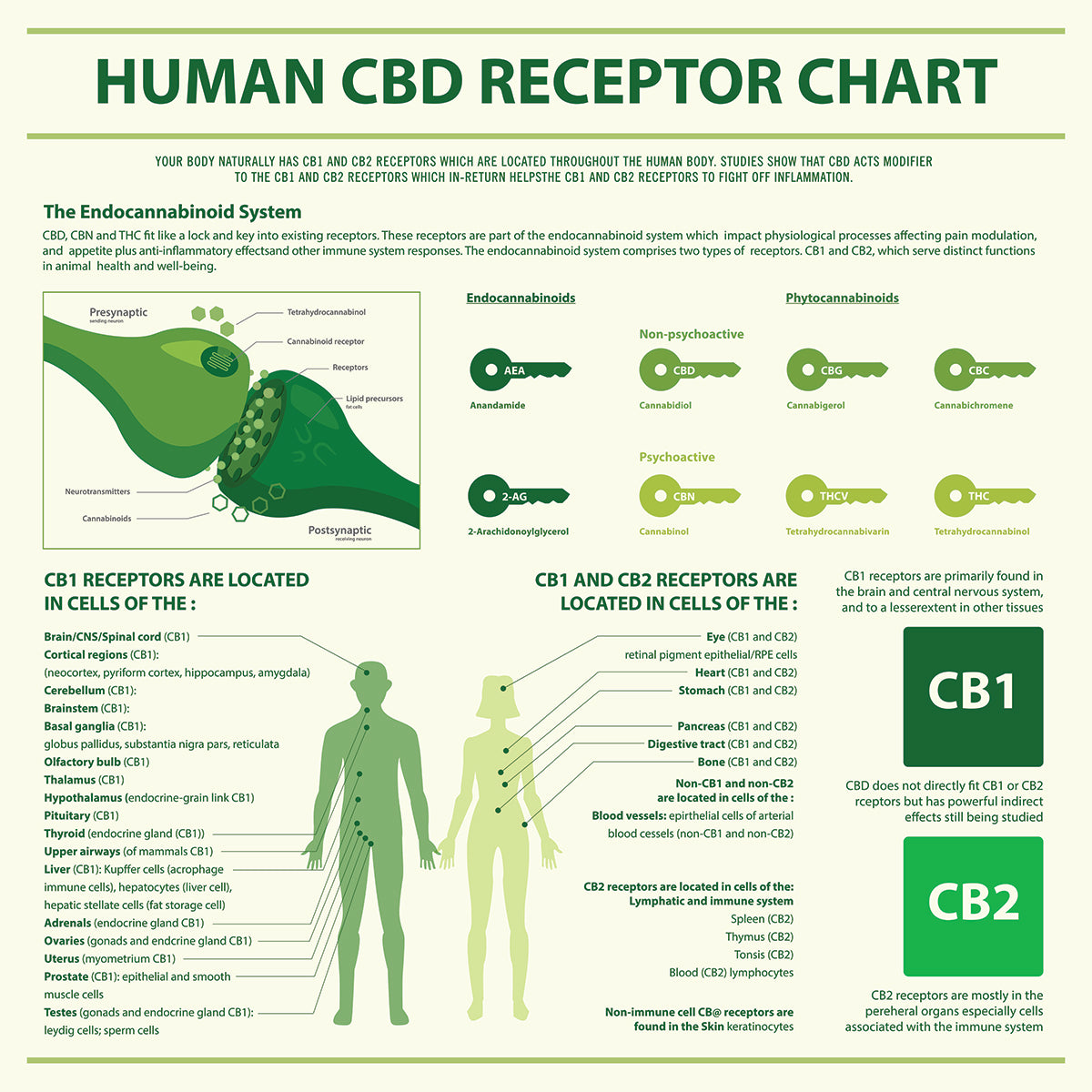
The Role of CB2 Receptors
Recent studies show that cannabis and hemp have been used for centuries to support joint health, pain management, sleep cycles, mood disorder management, and focus & memory improvement. Hemp offers healing benefits without the high!
How They Work
CB2 receptors are typically located on immune cells found throughout the body. They regulate essential cell functions, such as immunity, by managing pro-inflammatory effects (supporting anti-inflammation) or initiating inflammatory responses when necessary. CBD works through these receptor sites to manage pain-sensing neurons, eventually stopping them from sending discomfort signals into the nervous system, granting this natural therapy its healing power.
When Your Immune System Reacts Inappropriately
The inflammatory response is essential to how your immune system works, but sometimes, it becomes activated at the wrong time. When this happens, chronic inflammation can occur, or you might develop autoimmunity, leading to the attack on healthy cells by your body's natural defenses.
Pain is a natural survival instinct; our bodies are programmed to react when we experience it. This becomes problematic when these signals are improperly triggered. A well-known endocannabinoid called anandamide (AEA) can reduce feelings of intense discomfort by blocking the transmission of nerve impulses from one cell or neuron to another through messages sent via neurotransmitters.
Regulating the ECS
It is crucial to regulate the immune, nervous, and endocrine systems to achieve homeostasis. This helps alleviate pain and inflammation by returning these bodily functions to balance. CBD derived from hemp also impacts fat processing and mood regulation, increasing energy levels while improving brain health (neuro-inflammation).
Another way that this cannabinoid works its magic is through hormone regulation because it has qualities known as adaptogens or substances explicitly used for stabilization purposes, such as hormones within your body's system!
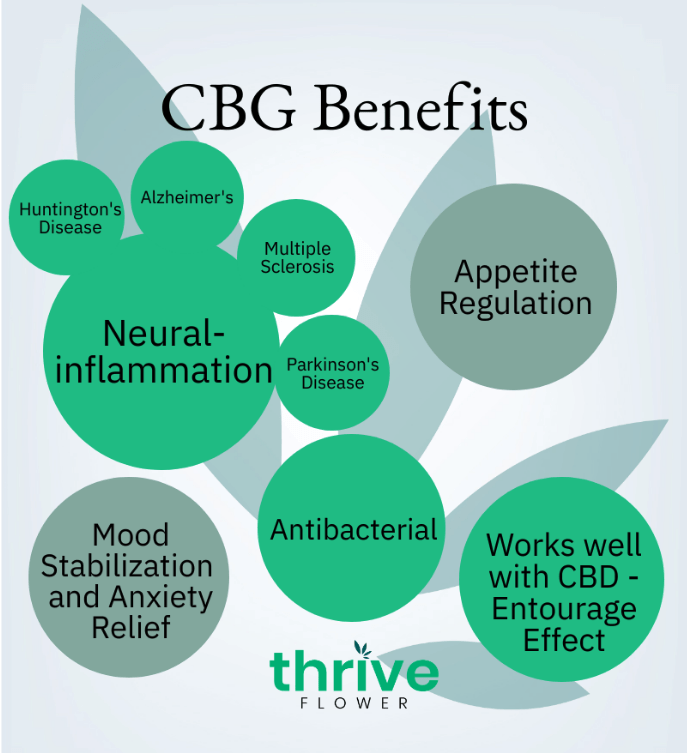
CBG vs CBD
CBG stands for Cannabigerol, one of over 100 cannabinoids in the cannabis plant. And while pretty much any hemp or cannabis plant contains some CBG, only young cannabis plants contain appreciable amounts. The most common feelings associated with CBG use are a sense of calm and general well-being, better focus and concentration, and relief from minor muscle discomfort, which are all very similar to CBD.
Cannabinoids interact with the body’s endocannabinoid system (ECS). The endocannabinoid system is a network of receptors and neurotransmitters that regulate various essential functions, including mood, appetite, pain perception, inflammation, and more.
While THC is the best-known cannabinoid, thanks to its
psychoactive effects, CBD has been getting much attention lately for its potential therapeutic benefits.
However, CBG is beginning to emerge as a potent player in natural health.
It is often called the “mother cannabinoid” because it is the precursor to other cannabinoids like CBD and THC. In other words, all cannabinoids start as CBG.
CBG has a similar molecular weight and very similar molecular mass compared to CBD. And that means it has similar health properties, too. CBG products do not have psychoactive effects, but they can help balance your body’s responses to daily stressors, helping you feel calmer when overwhelmed. It’s a popular choice for people looking to naturally boost their productivity, energy, and motivation, whether at school, work, or out and about.
Some people report feeling more alert and focused after taking CBG, while others say it helps reduce anxiety and promote relaxation. It is also thought to have anti-inflammatory and analgesic properties.
CBG’s antibacterial, anti-inflammatory properties mean it has the potential to improve gut health. CBG may also fight against the ‘bad’ bacteria that cause intestinal inflammation.
CBG has also been shown to have powerful antibacterial properties. A recent study showed that CBG was effective against methicillin-resistant Staphylococcus aureus (MRSA), a type of bacteria that is resistant to antibiotics.
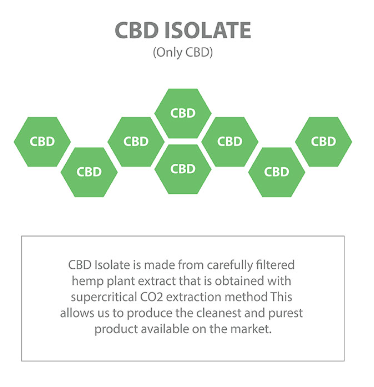
Why CBD/CBG Isolate?
Manufacturers extract cannabidiol isolate by eliminating all cannabis compounds except CBD. Purchasing CBD isolates implies that the consumer is getting purely cannabidiol compounds. After extraction, the extract undergoes winterization, where cannabinoids, terpenes, waxes, chlorophyll, and other plant matter are eliminated. CBD isolates have no plant fragrances or taste since terpenes, molecules behind the scent, are eliminated.
They come in different product types, including CBD oils, gummies, capsules, and tinctures. Reputable manufacturers produce high-quality products by employing the carbon dioxide extraction method. This technique eliminates all plant compounds except cannabidiol without leaving harmful residuals. The end product should not contain contaminants, heavy metals, microbials, or pesticides.
Cannabidiol isolates are suitable for people who undergo pre-employment THC screening tests. Also, these extracts are significantly used for cannabidiol oils and edibles. Individuals who dislike hemp's earthy and herbal taste should consume it.
Since the extracts have undergone extreme processing, their shelf life is longer than their counterparts because they contain the lowest constituents. However, it should be stored in a cool, dry place like a refrigerator. Unfortunately, CBD isolates have the lowest nutrition profile as they have cannabidiol purely.
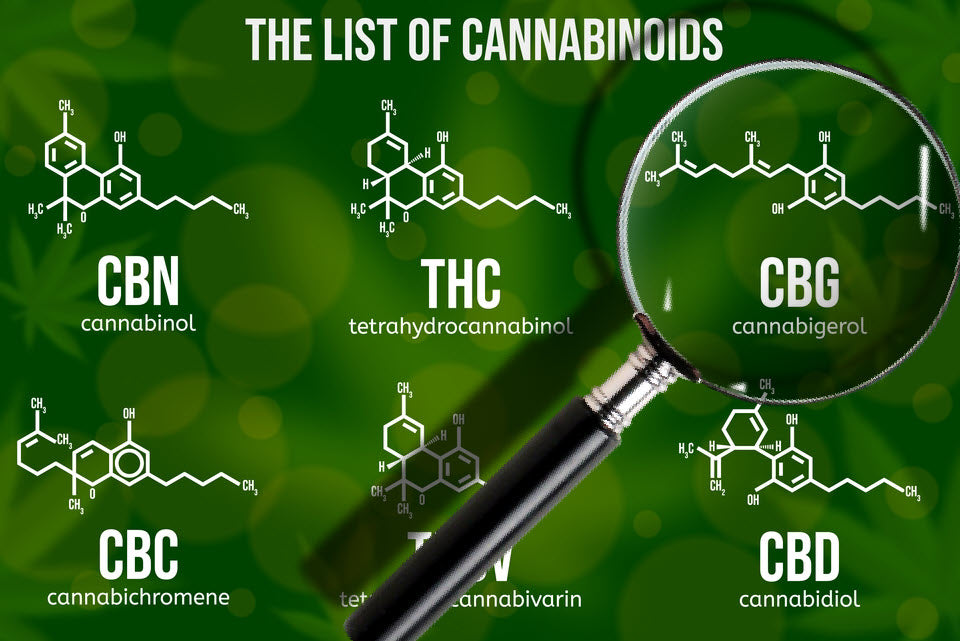
How Is CBD/CBG Isolate Made?
Distilling CBD exclusively from the hemp plant involves an “intricate process that gives producers enhanced control over what is and isn’t in the finished product (regarding THC),” says one Researcher. “All CBD isolate extraction methods utilize solvents, such as ethanol and carbon dioxide,” she adds.
Solvents will strip the plant material of all compounds (cannabinoids, terpenes, fatty acids, and more, except for cannabidiol. The resulting product is generally a crystallized form of CBD that can be crushed into a powder and added to gummies and oils.
Research suggests that plant-based cannabinoids like CBD isolate interact with the body’s endocannabinoid system (ECS), which regulates many physiological processes, including appetite, pain, and immune response. Cannabinoids work in the human body by binding to cannabinoid receptors in the ECS called CB1 and CB2 receptors. These interactions can help regulate the body’s central nervous system, emotional response, and immune response, among other functions.
